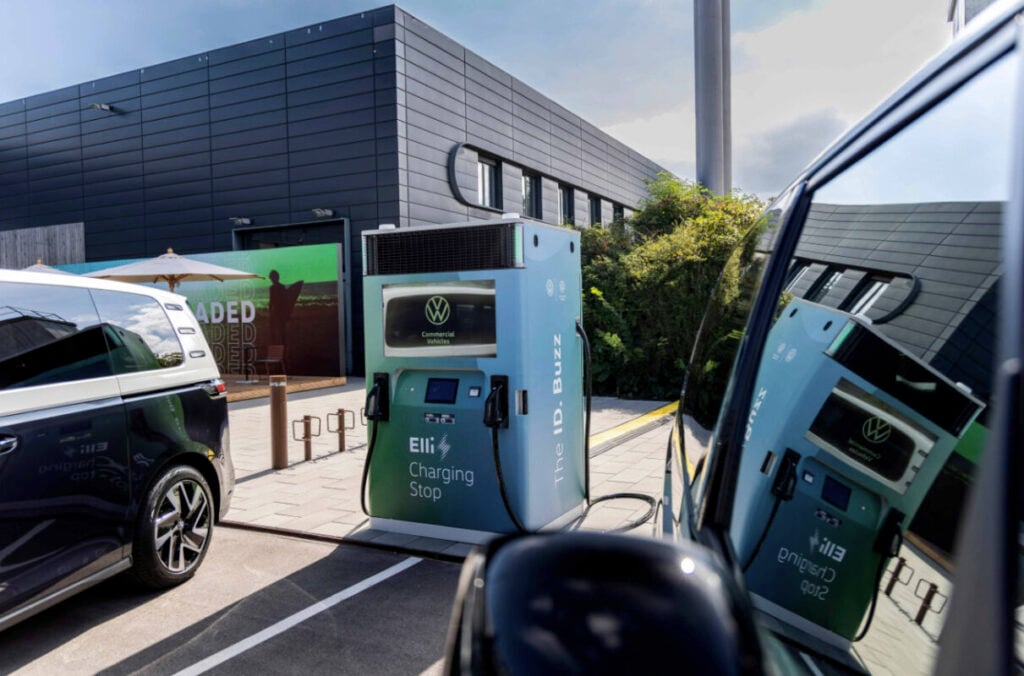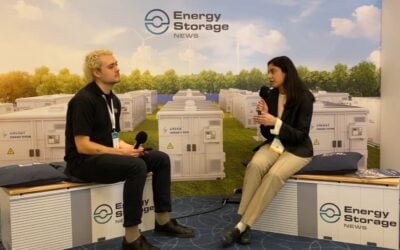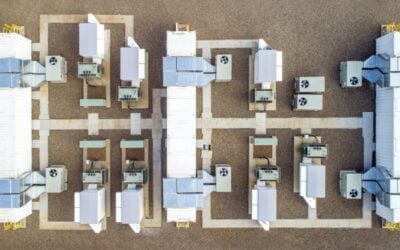
The EV charging and energy solutions arm of Volkswagen Group is entering the large-scale BESS market with individual projects up to 350MW/700MWh in size.
The automotive group’s subsidiary, Elli Group, will develop and operate large-scale energy storage projects, opening up a new business area and expanding its services. The first projects, utilising battery energy storage system (BESS) technology, could be launched next year and would be in Germany first.
The largest individual project in its planned portfolio are 350MW/700MWh in size, though it did not say if that would be the size of the first project in Germany.
“Germany and Europe need sufficient storage solutions to meet the increasing demand and to compensate for the volatile feed-in of renewable energies,” said Volkswagen Group board member for technology Thomas Schmall.
Try Premium for just $1
- Full premium access for the first month at only $1
- Converts to an annual rate after 30 days unless cancelled
- Cancel anytime during the trial period
Premium Benefits
- Expert industry analysis and interviews
- Digital access to PV Tech Power journal
- Exclusive event discounts
Or get the full Premium subscription right away
Or continue reading this article for free
Elli said that last year saw 10.5GWh of renewable energy curtailment in Germany due to a lack of energy storage options, enough to power 3.2 million electric vehicles (EVs) for the whole year.
“We see high financial potential in this business area and the opportunity to develop Elli into a holistic energy provider in Europe,” said Giovanni Palazzo, CEO of Elli.
Elli manages electric vehicle (EV) charging infrastructure across Europe as well as retail energy products both B2B and B2C built around EV charging needs.
Last year the company launched a 560kWh second life BESS using batteries from Volkswagen’s ‘e-up!’ line of EVs and an energy trading platform to monetise its fleet of EVs and EV charging via vehicle-to-grid (V2G) and vehicle-to-home (V2H) technology.
The second life BESS was also to be managed on the platform and serve as the testing ground for it, and may have helped facilitate the company’s entry into the large-scale, first life BESS space announced last week (7 June).
Elli’s head of energy solutions Ingo Müller explained to Energy-Storage.news at the time that V2G technology was fundamentally proven from a technical perspective, but that scaling it up required a lot of development around retail energy products that provided the right mix of security and benefits to consumers.
The grid-scale market in Germany is a hotbed of activity at the moment, with a 215GW solar PV 2030 deployment target driving the energy storage market to potentially over 100GWh of installs by that year, according to BloombergNEF. Just in the past month, triple-digit-MWh projects have been announced by Eco Stor, Uniper and Nofar.





